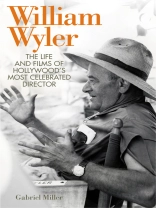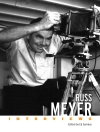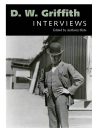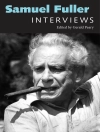During his forty-five-year career, William Wyler (1902–1981) pushed the boundaries of filmmaking with his gripping storylines and innovative depth-of-field cinematography. With a body of work that includes such memorable classics as Jezebel (1938), Mrs. Miniver (1942), Ben-Hur (1959), and Funny Girl (1968), Wyler is the most nominated director in the history of the Academy Awards and bears the distinction of having won an Oscar for Best Director on three occasions. Both Bette Davis and Lillian Hellman considered him America’s finest director, and Sir Laurence Olivier said he learned more about film acting from Wyler than from anyone else. In William Wyler, Gabriel Miller explores the career of one of Hollywood’s most unique and influential directors, examining the evolution of his cinematic style. Wyler’s films feature nuanced shots and multifaceted narratives that reflect his preoccupation with realism and story construction. The director’s later works were deeply influenced by his time in the army air force during World War II, and the disconnect between the idealized version of the postwar experience and reality became a central theme of Wyler’s masterpiece, The Best Years of Our Lives (1946). None of Wyler’s contemporaries approached his scope: he made successful and seminal films in practically every genre, including social drama, melodrama, and comedy. Yet, despite overwhelming critical acclaim and popularity, Wyler’s work has never been extensively studied. This long-overdue book offers a comprehensive assessment of the director, his work, and his films’ influence.
สารบัญ
Introduction
The Shakedown (1929); The Love Trap (1929); Hell’s Heroes (1930); A House Divided (1931)
Counsellor-At-Law (1933)
These Three (1936)
Dodsworth (1936)
COME AND GET IT (1936)
DEAD END (1937)
Jezebel (1938)
Wuthering Heights (1939); THE Westerner (1940); The Letter (1940)
The Little Foxes (1941)
WAR FILMS: Mrs. Miniver (1941); Memphis Belle (1944); Thunderbolt (1945)
THE BEST YEARS OF OUR LIVES (1946)
THE HEIRESS (1949)
Chapter 13CARRIE (1951)
HUAC: Detective Story (1951); Roman Holiday (1953); The Desperate Hours (1955); The Children’s Hour (1961)
THE PACIFIST DILEMMA: Friendly Persuasion (1956); THE Big Country (1958); Ben-Hur (1959)
FINAL PROJECTS: The Collector (1965); How to Steal a Million (1966); Funny Girl (1968); The Liberation of L.B. Jones (1970)
เกี่ยวกับผู้แต่ง
Gabriel Miller, professor of English at Rutgers University, is the author or editor of numerous books, including The Films of Martin Ritt: Fanfare for the Common Man, Clifford Odets, and William Wyler: Interviews.











